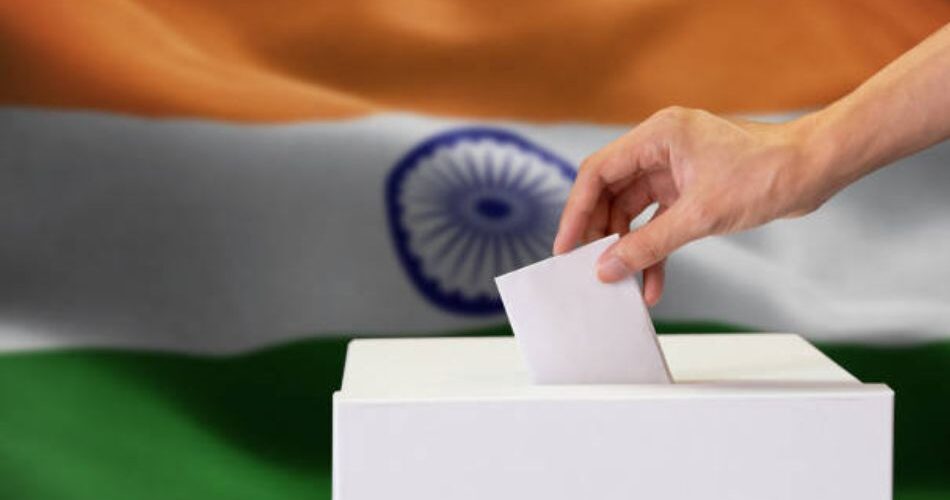Indian Politics: Expulsion Of Congress Leader Sanjay Nirupam

Indian Politics: The recent Indian political sphere got enriched with an unprecedented change following the removal of Congress leader Sanjay Nirupam for six years from the party. This decision has affected the political landscape of the country, especially the issues prevailing in the opposition lane and India going into the national elections in 2024. In this thorough review, we will plunge deep into Sanjay Nirupam’s dismissal, the implications, and the broader context surrounding its instance.

The Expulsion of Sanjay Nirupam: A Shockwave in Indian Politics
Sanjay Nirupam, a well-known figure in the Congress party, has been caught up in the political controversy after the party announced his expulsion for six years. The choice divulged an eyebrow-raising factor that even sparked gossip within the political corridors, with Nirupam being a long term associate of Congress and a very vocal person in Indian politics. Accusations pertaining to indirect party involvement were specifically targeted at the Shiv Sena faction under the leadership of Uddhav Thackeray, the current Chief Minister of Maharashtra.

The indictment of Nirupam highlights the inner dynamics and power struggle within the Congress party, as well as the coalition forming to challenge the Bharatiya Janata Party (BJP) in the upcoming national election. Others have interpreted it as a calculated move for the Congress leadership to set discipline and unity within the party, while others have interpreted it as a manifestation of internal factionalism and ideological cleavages.
The Context: Growing Tensions within the Opposition Alliance
Nirupam’s expulsion happens at a time of high tension between the oppositional alliance that is in gear for contesting the Bharatiya Janata Party (BJP), which is ruling now in the countrywide elections of 2024. The umbrella, which has many parties of different ideologies, is having some crises with respect to internal disputes and power games, especially in the states of Maharashtra.
The Congress Party and the Shiv Sena have clearly shown a widening gap in recent months, fueled by ideological differences in political disputes. The sacking of Nirupam only added to the existing fissures in the opposition arena, provoking uncertainty concerning the strength and cohesion of the opposition fraternity that aspires to wipe the BJP from office.
Allegations and Denials: The Debate Surrounding Nirupam’s Expulsion
The reason behind the charges against Sanjay Nirupam is relevant to his “anti-party activities,” especially the admonition of the Maharashtra government run by Shiv Sena. It is clear that Nirupam’s outspoken criticism of certain policies and plans of the Shiv Sena administration did not sit well with party leaders, resulting in his dismissal. The truth, however, is that Nirupam has forcefully denied the allegations and called his dismissal unjustified, referring to his party leaders as being against dissent and individual freedom.
Nirupam’s expulsion from the party led to a rise in the argument on the difficulties of handling internal discord and divergence inside a political organization, especially in the scenario of coalition politics. While the leaders of the parties, to a certain extent, risk themselves of democratic principle within their own groups, they must, on the other hand, maintain party discipline and unity.
Implications for Indian Politics: Looking Ahead to the 2024 Elections
The expulsion of Sanjay Nirupam entails major political repercussions for Indian politics, both in the near future and in the not-so-distant future. In the first place, it has split the Congress party and wider opposition alliance, internally weakening the party’s coordination and profile, which is of special significance. Whether Nirupam’s expulsion turns into poll election campaign verdicts, or redraws the alliance’s power schemes before the ballot day is something to candidly wait for and watch.

Besides, the expulsion of Nirupam by the party is indicative of the trickiness and difficulty of coalition politics in India, where parties of different beliefs and objectives get together to form governments at two levels: the state and the national. In the delicate balance of power within these alliances, friction and dissonance inevitably arise, as evidenced by the relationship between the Congress party and the Shiv Sena in the state of Maharashtra.
In the run-up to the national elections in 2024, the Indian political scene retains a look of being flowy and rather unpredictable, with alliances getting more and more unstable, rivalries reaching their climax, and the political processes changing quite rapidly. Rejection of an experienced politician like Sanjay Nirupam is a grim warning that any contender should be aware of the high stakes and tough competition that typify Indian politics. At last, either the electorate’s judgment or the run-up of elections and a proper democracy they head for will decide the future form of Indian democracy.
Conclusion: Navigating the Complexities of Indian Politics
The expulsion of Congress Leader certainly aattested the complex nature of the Indian government affairs. In the shadow of the growing tension inside the opposition bloc and the 2024 presidential elections behind the corner, the parties are facing internal discord, pro-factionalism, and political maneuvering.
After Nirupam’s removal, the political situation became uncertain.Strategic partnerships are changing, rivalries are increasing, and electoral dynamics are shifting. In this readily changing scenario, the deeds and decisions that the political leaders take possess an enormous influence on the future course of Indian democracy. With the country navigating the maze of coalition politics and electoral rivalry, the future of democracy in the nation will ultimately hinge on the voters.










